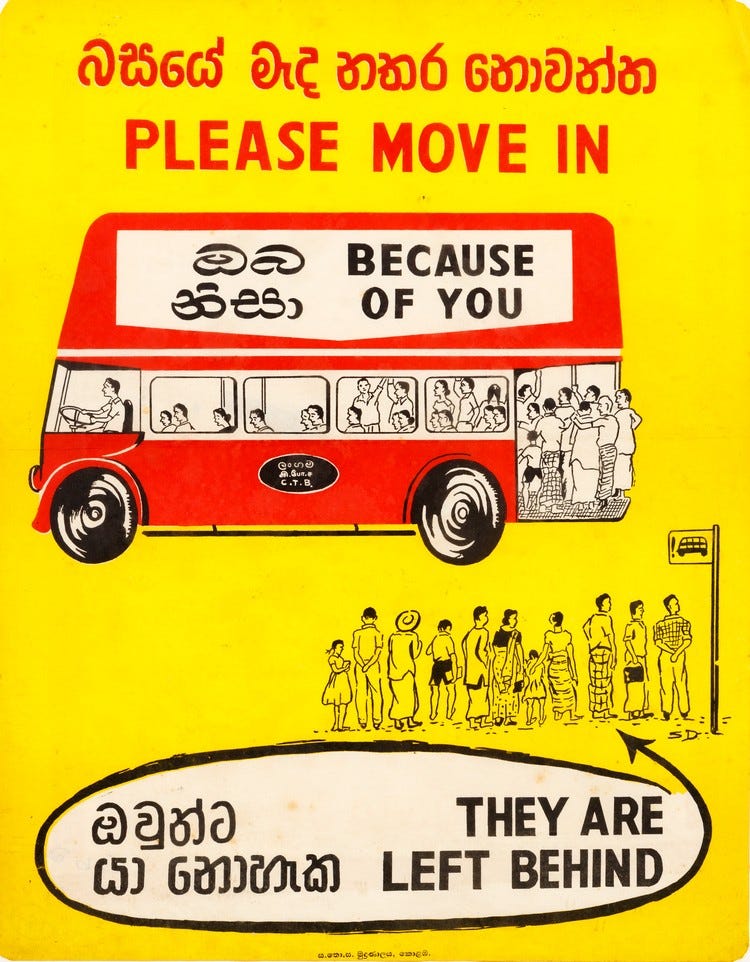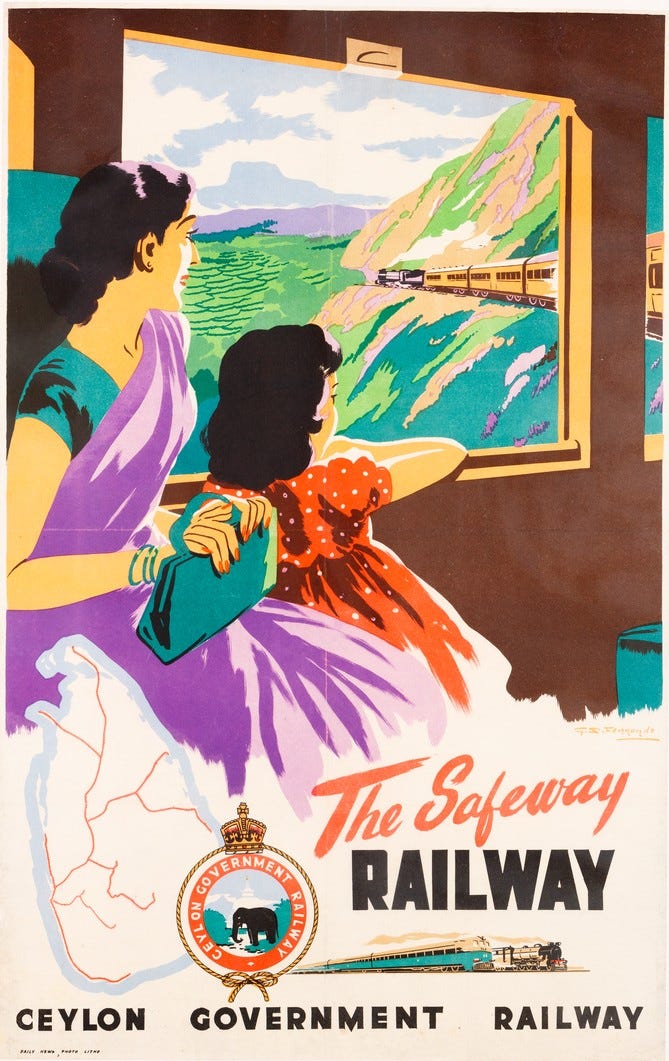Throwing My Kids Into The Bus

When the bus stops I throw my kids up the steps. The old Ashok Leyland starts moving before I get in, but I’m not worried about them. A dozen hands immediately reach out for my babies, holding their unsteady bodies steady. Three people offer their seats. It is these times when I most love my country. Even the strangers on the bus treat children like beloved family.
Capitalism is most urgently about the destruction and commodification of this feeling. It started with the destruction of the commons. Of the community. Of the family. Capitalism’s greatest avatar is the car, conquering the human city. The car is a literal capital asset that plows through common spaces, separating communities with steel, atomizing caring villages into unstable nuclear families. With its five seats, it precisely commodifies us into two parents and 2.5 children, averaging out the beautiful mess of humanity.
People get cars to keep their families safe, but it’s a circular illogic. Our children are unsafe because there are cars roaming the streets, because we turned our streets into rivers of death full of carnivores. It’s a classic tragedy of the commons. That story is about sheep devouring the common fields, and now our Wolfswagens have devoured the city.
Each new person gets a car to keep their children safe, but this makes the city less safe for everybody else. Then those people get cars and traffic gets even worse. Suddenly people are moving at walking speed, except stuck in metal cages and angry. It’s a capitalist dream and a nightmare for humanity. Capital loves the idea of humans spending $30,000 on a cage and $300 on the fuel to keep it idling. But the human soul screams in captivity.
The truth is that public transport is the only way to reclaim this public space. Electric cars are just changing the engine of destruction, which still churns land and bodies into the same paste.
To me, transport is the real show of power. Your transport system shows who controls the streets. If cars control the street then you know that the rich are in charge. If pedestrians do, then you know that it’s the people. If the disabled and blind are empowered, then you know you’re nearing peak humanity. If children can run and play unattended, then by God you’re free. I long for my children to be free. The closest I get is that feeling when I throw them up the bus, into the arms of my community.
